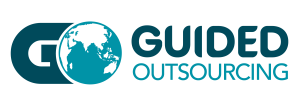
Administrative work often goes unnoticed, but it quietly keeps businesses organized and running efficiently. From managing schedules and documentation to handling reports and correspondence, these everyday tasks hold teams together behind the scenes. As businesses grow, managing emails, scheduling, reports, and data entry can become overwhelming and distracting teams from strategic, revenue-generating work. This is why more companies are now choosing to outsource their admin work to trusted professionals who can handle it efficiently and cost-effectively.
But outsourcing isn’t just about offloading work, it’s about making the right partnership decisions. Asking the right questions before signing any agreement can make the difference between a smooth partnership and a costly mistake.
Below are 10 key questions every business should ask before outsourcing administrative work, along with insights on why they matter and what to look for in the answers.
1. What specific admin tasks should be outsourced?
Not every task belongs outside your organization. Before outsourcing your admin work, identify what’s consuming your time versus what requires your team’s direct oversight. Administrative services can include data entry, appointment scheduling, bookkeeping support, CRM management, travel arrangements, and customer correspondence.
Outsourcing works best when you offload repetitive, time-consuming, and non-core tasks, freeing your in-house team for projects that drive growth. According to Deloitte’s Global Outsourcing Survey, companies that strategically outsource achieve higher efficiency and lower costs across support functions.
Key tasks ideal for outsourcing:
- Calendar and inbox management
- Document preparation and data processing
- Payroll and bookkeeping assistance
- Travel booking and expense tracking
- CRM updates and client data maintenance
- Vendor or supplier coordination
When choosing a provider, ensure they have proven experience handling these specific functions for businesses similar to yours.
2. What’s the provider’s experience and track record?
Experience is more than a number of years, it’s about relevance. A reliable outsourcing partner should demonstrate an understanding of your industry, your workflows, and your pain points.
Look for case studies, client testimonials, and examples of measurable results. Ask whether they’ve worked with companies of your size and how they handled scaling needs or process transitions.
Checklist for evaluating experience:
- Do they serve businesses in your industry?
- Can they provide references or client success stories?
- How do they handle challenges or process improvements?
- Are their staff trained in modern admin tools (CRM, Microsoft 365, Google Workspace, etc.)?
3. How do they ensure data security and confidentiality?
When outsourcing your admin work, you’re handing over sensitive data such as employee records, financial details, client information, and internal communications. Security should never be an afterthought.
A professional outsourcing company must have strict data privacy protocols aligned with international standards like GDPR or ISO/IEC 27001. Always inquire about how they protect and store your data.
Key questions to ask:
- What data protection measures are in place?
- Are NDAs signed by all staff members?
- How is data transmitted and stored securely?
- What’s their disaster recovery plan in case of a breach or outage?
Strong security builds trust and protects your business from legal and reputational risks.
4. What communication and reporting systems are used?
Smooth communication is the foundation of any successful outsourcing relationship. The best providers maintain transparency through regular updates, clear reporting, and consistent points of contact.
You should know who your primary contact is, how progress is tracked, and what tools are used for collaboration.
Consider asking:
- What communication platforms do you use (e.g., Slack, Zoom, Teams)?
- How frequently are updates and reports provided?
- Will I have a dedicated account manager or team lead?
- How do you handle urgent requests or issues?
Clarity in communication prevents misunderstandings and ensures alignment, especially when working across different time zones.
5. How do they measure success and performance?
Performance metrics reveal how effectively your admin tasks are being managed. Before outsourcing, clarify which KPIs (Key Performance Indicators) the provider tracks and how these align with your business goals.
For example, turnaround times, accuracy rates, error frequency, and service uptime can all be used to gauge performance.
Examples of Important KPIs:
- Response time for admin requests
- Data entry accuracy rate
- Task completion turnaround time
- SLA (Service Level Agreement) compliance
- Client satisfaction scores
Regular performance reviews help keep both sides accountable and drive continuous improvement.
6. What are the costs and payment terms?
Pricing is often the biggest factor, but it shouldn’t be the only one. A cheaper rate may look attractive, but quality and reliability are what deliver long-term value.
Ask for transparent cost breakdowns: hourly rates, full-time equivalents, setup fees, and any additional charges. Evaluate whether pricing is fixed, flexible, or volume-based.
What to clarify:
- Are there any hidden or onboarding costs?
- What’s the minimum contract length?
- Can the service scale up or down as needed?
- Are performance-based pricing models available?
A good outsourcing provider will tailor their pricing to fit your operational needs while maintaining transparency and flexibility.
7. How do they train and support their admin teams?
Your outsourced staff are an extension of your business. Their competence directly affects your efficiency and reputation. The best providers invest heavily in ongoing training, upskilling, and mentorship to keep their admin teams sharp and reliable.
Ask about onboarding programs, continuous learning initiatives, and how they maintain service quality.
Questions to include:
- How are new hires trained in client-specific workflows?
- What ongoing training do team members receive?
- How do you handle performance reviews or staff turnover?
- Are there supervisors overseeing admin operations?
Providers like Guided Outsourcing emphasize “We Care” and “Working Lifestyle” values, ensuring teams are engaged, supported, and motivated to perform at their best.
8. How flexible are their solutions?
Every business operates differently. A one-size-fits-all approach rarely works for administrative outsourcing. Flexibility in service scope, working hours, and tools ensures your partner can adapt to your evolving requirements.
Ask whether the provider can integrate with your existing systems or create customized workflows.
What to evaluate:
- Can services be scaled seasonally or project-by-project?
- Do they accommodate specific time zones or work hours?
- Can they use your preferred software or tools?
- Are customized reporting formats available?
A flexible outsourcing partner grows with your business instead of limiting it.
9. What cultural and time zone considerations exist?
Cultural alignment plays a bigger role than many realize. When outsourcing your admin work internationally, consider language fluency, communication style, and time zone compatibility.
For instance, outsourcing to the Philippines has become increasingly popular due to Filipinos’ strong English proficiency, cultural adaptability, and round-the-clock availability.
To assess compatibility:
- Are communication styles and expectations aligned?
- What are the working hours relative to your team’s schedule?
- How do they manage cross-cultural training and collaboration?
Finding a partner that understands your business culture leads to smoother teamwork and long-term success.
10. What’s the transition and onboarding process like?
Even with the best outsourcing plan, transition can be challenging. A clear onboarding process minimizes disruptions and helps your internal team adjust seamlessly.
Your provider should guide you through data handovers, process mapping, workflow alignment, and communication setup.
Ask these questions:
- What’s your standard onboarding timeline?
- Who manages the transition phase?
- How do you ensure continuity during handover?
- Is there post-onboarding support or review?
A transparent transition plan reflects the provider’s professionalism and readiness to become a trusted operational partner.

Final Thoughts
Outsourcing your admin work isn’t just a cost-saving tactic, but also a strategic move that gives your business back its time and focus. The right outsourcing partner can turn administrative complexity into operational efficiency, freeing leaders to innovate and grow.
Asking these questions helps ensure you find a partner who’s secure, reliable, communicative, and aligned with your business goals. Take time to evaluate, compare, and choose wisely, because the long-term benefits are worth the diligence.
Partner with Guided Outsourcing, where we simplify operations, connect global talent, and help you work smarter without boundaries. Book a free consultation today.

